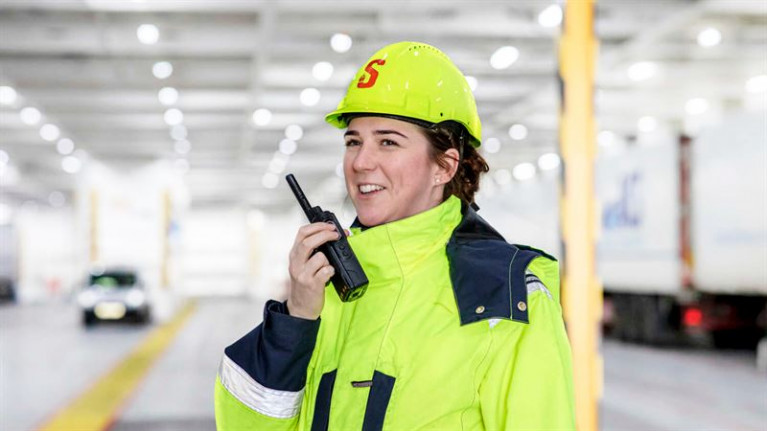Stena Line believes that if the shipping industry is going to solve its jobs’ crisis due to Brexit and the Pandemic, there is a simple solution; it urgently needs to encourage more women to work in careers at sea, in roles that are often still viewed as for men.
The shipping sector, like many other parts of the economy, has not been immune to the effects of Brexit and Pandemic. This combined double whammy has led to a shortage of people needed to fill vacant roles and address the huge skills shortage in the sector.
With a shortage of skilled labour within the shipping industry there is currently fierce competition for talent. Therefore, now more than ever it is vitally important that companies like Stena Line provide an attractive place for young seafarers to work and develop successful careers.
In order to succeed in this career, the Swedish ferry company is hoping to build on its existing strong diversity drive to recruit more women, and crucially promote them to senior positions. It has set itself a target of appointing 30% females managers by the end of 2022. In a sector where only 2% of the 1.2 million seafarers are women this is an ambitious target that lays down a gauntlet for other companies to try to achieve.
Stena Line is today also proud to announce that this year the company has appointed its first female Captain, 33 year old Lynette Bryson became Master on the Stena Adventurer in the Irish Sea, where she also has a full female Bridge team of officers.
Speaking after her appearance at the Women in Maritime Summit, which has held as part of London International Shipping Week (LISW21), Margaret Jensen Dickson, Group Head of People at Stena Line, says: “The shipping sector is in a jobs’ crisis and there is a shortage of people in every part of the industry. No matter whether the problem is caused by Brexit, or the Pandemic, there is simple solution and that is to encourage more women to work in shipping. The people shortage is one of the biggest crises Stena Line has ever faced and we are throwing the kitchen sink at it. Onboard roles can no longer be seen as a male domain. With the appointment of Lynette Bryson as our first female Captain we have shown that woman can and will succeed at sea and Stena Line will be here to support them”.
The Stena Adventurer is one of the largest vessel in Stena Line’s fleet. It serves the key Dublin-Holyhead route, where it operates four services a day. As Night Master it means Lynette Bryson, and her team of female officers, are in charge of two of those trips. Since joining the company in 2017 Lynette has worked herself through the ranks, gaining four promotions as a result of her professional, dedicated and diligent approach to her key leadership on the vessel.
Captain Lynette Bryson, Master of the Stena Adventurer said: “I am incredibly proud to be sailing as Master on the Stena Adventurer, and as the first female Master at the company; this could not have been done without the support of my colleagues at Stena Line. As a young woman I always dreamt of a career at sea and never thought I could ever achieve being a Captain. I hope my position can encourage more young women to follow my path and have a successful maritime career.”
During the pandemic Stena Line has also played a crucial role in supporting new maritime recruits from other parts of shipping, particularly the cruise sector. With cruise lines no longer operating deck cadets and trainees were able to work for ferry operator, order to confirm they had enough hours at sea in order to graduate.
Stena Line’s diversity ambitions are guided by the UN’s Sustainable Development Goals 5 - Achieve Gender Equality and Empower all Women and Girls– and specifically, to achieve Target 5.5 “Ensure women’s full and effective participation and equal opportunities for leadership at all levels of decision-making in political, economic and public life”. The aim is to successfully fulfil one of the key indicators to achieving this, which is the ‘proportion of women in managerial positions’. More information on Stena Line’s diversity drive can be found here.
The company currently has a number of roles that it is looking to fill. For further information on a career at Stena Line and vacancies, click here.



























































